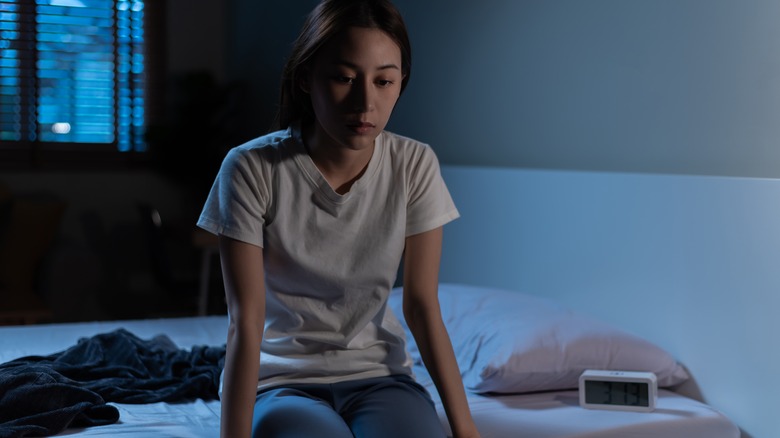It’s all too easy to get dehydrated — one day you’re feeling energized and on top of your water intake, and the next, you’re feeling lethargic and less than optimal (via MedicalNewsToday). Dehydration can happen when we’re too busy, don’t have enough water available, or are sweating, vomiting, or experiencing diarrhea.
Our bodies are about 75% water, so it’s important to maintain our hydration levels. While we can get hydration from high water content foods like fruits and vegetables, we also need to make sure we’re consuming plenty of fluids (per MedicalNewsToday). When we’re not taking in enough water or are losing too much, we can start to feel thirsty, urinate less, and have darker urine. If dehydration progresses, we might experience headaches, dry mouth, dizziness, lethargy, and weakness. If 10-15% of the body’s water is lost, severe dehydration sets in and becomes more dangerous, with symptoms including low blood pressure, increased heart rate, fever, delirium, and even unconsciousness.
While water intake should be individualized, the U.S. National Academies of Sciences, Engineering, and Medicine recommend that men drink about 15 cups of water per day, and women drink about 11. But how can we ensure we stay hydrated while we’re sleeping?
You might already be dehydrated

While we sleep, we’re obviously not taking in any water. And in fact, the way we sleep may influence our hydration levels too. A 2006 study showed that those who breathe through their mouth while they sleep lost 42% more body fluids than those who breathe through their nose. Health experts suggest lower hydration levels while we sleep are not likely to cause severe effects like cognitive impairment, but it’s still worth paying attention to (via The Healthy).
Dr. Rebecca Scott, research assistant professor of neurology at the NYU Langone Comprehensive Epilepsy Center-Sleep Center, told The Healthy that dehydration is still a major concern since most people aren’t adequately hydrated in the first place. She says that if you’re feeling thirsty, you’re probably already dehydrated.
Surprisingly, dehydration might actually be connected to a lack of sleep, according to a 2024 study published in the journal Sleep. The study found that those who only slept six hours per night had significantly higher levels of dehydration than those who slept for eight hours per night.
